French President Francois Hollande has been attacked from all sides for offering a deported Roma schoolgirl the chance to return to France without her family, ceding ever more ground to French Minister of the Interior Manuel Valls.
Hollande’s offer to let Leonarda Dibrani, 15, come back to the country — which she declined, saying she would not leave behind her parents and five siblings in Kosovo — has been met with incomprehension and vitriol, leaving the president accused of misusing his position and acting “emotionally.”
French media on Sunday let rip at Hollande, with the Web site of the left-wing Liberation newspaper describing the move as “the most improbable of all scenarios,” and the weekly Journal du Dimanche (JDD) calling it “as bizarre as it is incomprehensible.”
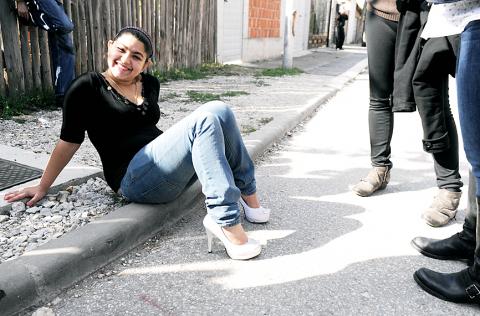
Photo: AFP
French politician Francois Bayrou, a centrist heavyweight who backed Hollande in the second round of presidential elections last year, weighed in to say a head of state “should not confuse emotion and the duty of government.”
The Roma teenager immediately turned down Hollande’s offer from the town of Mitrovica in Kosovo, where she has been living with her family since their Oct. 9 deportation.
“I’m not the only one who has to go to school, there are also my brothers and sisters,” she said.
The family were assaulted on Sunday in what local authorities described as a private dispute with another family that was unrelated to their deportation from France.
The girl’s mother was briefly hospitalized and released as her injuries were not serious, police said, adding that four people have been detained.
Leonarda’s arrest by French police during a school trip and the subsequent deportation of her family has aroused soul-searching by France’s left and brought thousands of high-school students to the streets in protest.
The results of a formal investigation published on Saturday found that the deportation was lawful, but that police could have used better judgement in the way they handled it.
However, the case was further complicated by revelations that Leonarda’s father had lied about his family’s origins to have a better chance at obtaining asylum.
As an advocate of the rigorous enforcement of immigration laws, Valls was put in a difficult position when his boss made the grand gesture.
Initially praising an “act of generosity” in an interview with the JDD, Valls went on to say that the family’s deportation was justified by seven prior asylum rejections and the “fraudulent documents” they provided in support.
Yet in a deft maneuver seemingly designed to distance himself from the president, Valls said” “Emotion cannot be the guide [in deciding] a policy.”
He then paid tribute to France as a “land of immigration,” but nonetheless stressed the need to “control the flow” of foreigners entering the country.
Last month, Spanish-born Valls triggered an outcry when he said most of the 20,000 Roma in France had no intention of integrating and should be sent back to their countries of origin.
A survey by polling firm BVA published on Saturday in the Le Parisien daily showed that 74 percent of the French approved Valls’ position on the Dibrani controversy.
Hollande’s own approval ratings are dismal, slumping to a new low of just 23 percent, according to a poll published on Sunday in the JDD.
“We are in a period where public opinion is supportive of the forces of law and order, of discipline,” political commentator Roland Cayrol told reporters.
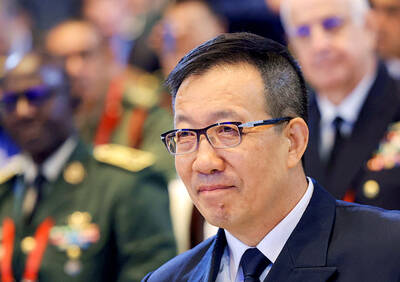
BEIJING FORUM: ‘So-called freedom of navigation advocated by certain countries outside the region challenges the norms of international relations,’ the minister said Chinese Minister of National Defense Dong Jun (董軍) yesterday denounced “hegemonic logic and acts of bullying” during remarks at a Beijing forum that were full of thinly veiled references to the US. Organizers said that about 1,800 representatives from 100 countries, including political, military and academic leaders, were in Beijing for the Xiangshan Forum. The three-day event comes as China presents itself as a mediator of fraught global issues including the wars in Ukraine and Gaza. Addressing attendees at the opening ceremony, Dong warned of “new threats and challenges” now facing world peace. “While the themes of the times — peace and development —
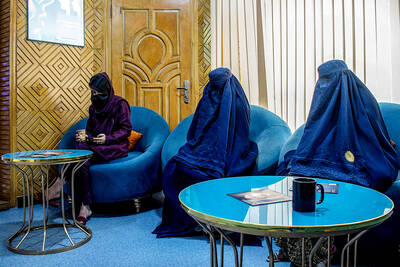
Decked out with fake crystal chandeliers and velvet sofas, cosmetic surgery clinics in Afghanistan’s capital are a world away from the austerity of Taliban rule, where Botox, lip filler and hair transplants reign. Despite the Taliban authorities’ strict theocratic rule, and prevailing conservatism and poverty in Afghanistan, the 20 or so clinics in Kabul have flourished since the end of decades of war in the country. Foreign doctors, especially from Turkey, travel to Kabul to train Afghans, who equally undertake internships in Istanbul, while equipment is imported from Asia or Europe. In the waiting rooms, the clientele is often well-off and includes men
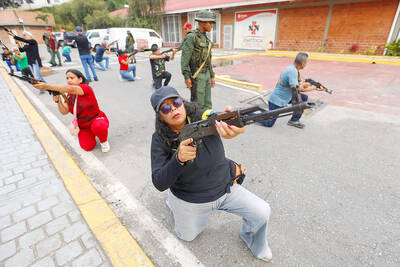
Venezuela on Saturday organized a day of military training for civilians in response to the US deployment in the Caribbean, and amid new threats from US President Donald Trump. About a month ago, Washington deployed warships to international waters off Venezuela’s coast, backed by F-35 jets sent to Puerto Rico in what it calls an anti-drug and anti-terrorism operation. Venezuelan Minister of Defense Vladimir Padrino Lopez has accused Washington of waging “undeclared war” in the Caribbean, after US strikes killed over a dozen alleged drug traffickers off his country’s coast. Caracas also accused the US of seeking regime change, and
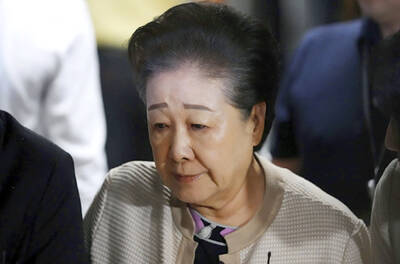
BRIBERY ALLEGATIONS: A prosecutor said they considered the risk of Hak-ja Han tampering with evidence to be very high, which led them to seek the warrant South Korean prosecutors yesterday requested an arrest warrant for the leader of the Unification Church, Hak-ja Han, on allegations of bribery linked to the country’s former first lady and incitement to destroy evidence. The move came a day after the 82-year-old was questioned over her alleged role in bribing former first lady Kim Keon-hee and a lawmaker. Founded in 1954 by her late husband, Sun Myung Moon, the Unification Church has long been the subject of controversy and criticism, with its teachings centered on Moon’s role as the “second coming” and its mass weddings. Followers are derisively referred to as “Moonies.” However, the church’s